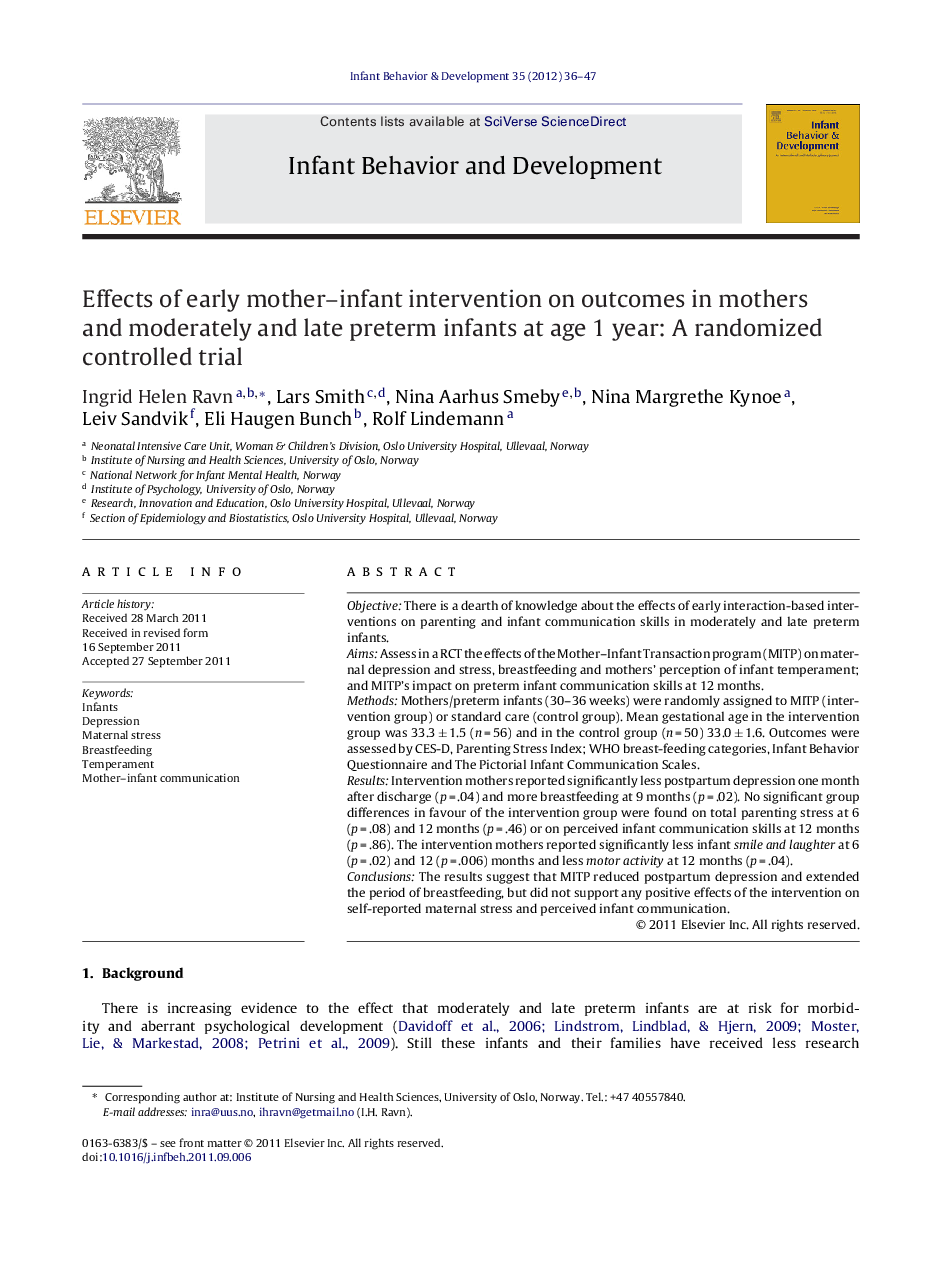| Article ID | Journal | Published Year | Pages | File Type |
|---|---|---|---|---|
| 917262 | Infant Behavior and Development | 2012 | 12 Pages |
ObjectiveThere is a dearth of knowledge about the effects of early interaction-based interventions on parenting and infant communication skills in moderately and late preterm infants.AimsAssess in a RCT the effects of the Mother–Infant Transaction program (MITP) on maternal depression and stress, breastfeeding and mothers’ perception of infant temperament; and MITP's impact on preterm infant communication skills at 12 months.MethodsMothers/preterm infants (30–36 weeks) were randomly assigned to MITP (intervention group) or standard care (control group). Mean gestational age in the intervention group was 33.3 ± 1.5 (n = 56) and in the control group (n = 50) 33.0 ± 1.6. Outcomes were assessed by CES-D, Parenting Stress Index; WHO breast-feeding categories, Infant Behavior Questionnaire and The Pictorial Infant Communication Scales.ResultsIntervention mothers reported significantly less postpartum depression one month after discharge (p = .04) and more breastfeeding at 9 months (p = .02). No significant group differences in favour of the intervention group were found on total parenting stress at 6 (p = .08) and 12 months (p = .46) or on perceived infant communication skills at 12 months (p = .86). The intervention mothers reported significantly less infant smile and laughter at 6 (p = .02) and 12 (p = .006) months and less motor activity at 12 months (p = .04).ConclusionsThe results suggest that MITP reduced postpartum depression and extended the period of breastfeeding, but did not support any positive effects of the intervention on self-reported maternal stress and perceived infant communication.
► The Mother–Infant Transaction Program (MITP) reduced postpartum depression. ► MITP extended the period of breastfeeding in mothers of moderate and late preterms. ► MITP did not reduce maternal stress or enhance infant communication at 12 months. ► Intervention mothers reported less smile/laughter in their infants at 6/12 months. ► Less motor activity was observed at 12 months in the intervention group.
